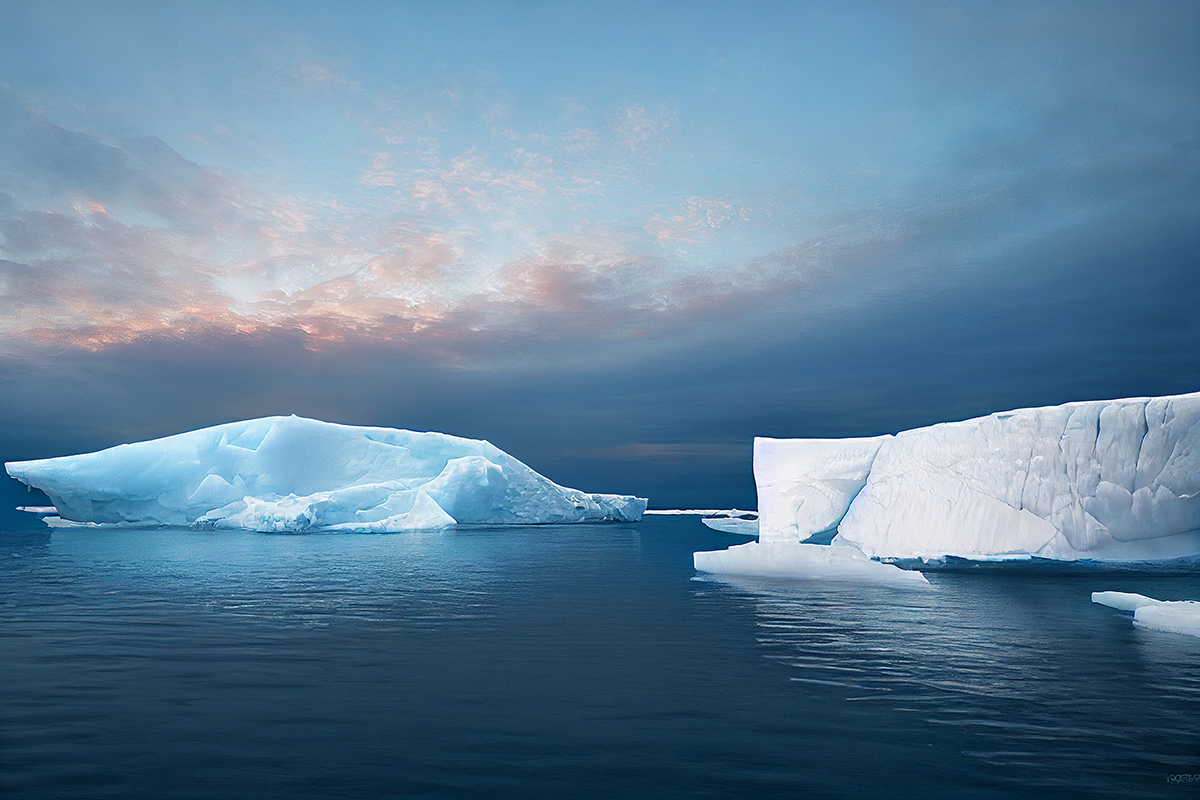The report finds that the deep Antarctic ocean water, considered the coldest and saltiest in the world, is experiencing a concerning increase in temperature and decrease in volume, implying significant implications for climate change and the deep-sea ecosystem.
Often termed “Antarctic bottom water,” this unique body of water contributes significantly to the ocean’s ability to counteract climate change by absorbing surplus heat and anthropogenic carbon emissions. Additionally, it facilitates nutrient circulation throughout the sea.
However, researchers have observed a substantial decline in this crucial water mass in the Weddell Sea, situated along Antarctica’s northern coast, due to long winds and sea ice shifts. The British Antarctic Survey disclosed these findings in their study published on Monday.
The investigation utilized data from satellites and ship readings collected over several decades to evaluate the volume, temperature, and salinity of this section of the deep Antarctic Ocean.
“Sections of the sea that were first visited in 1989 are among the most thoroughly studied areas in the Weddell Sea,” BAS’s physical oceanographer and co-author of the study, Povl Abrahamsen, commented.
The study found that the volume of the cold bottom waters has diminished by over 20% in the past thirty years. In addition, ocean waters deeper than 2,000 meters (6,600 feet) were heating up at four times the rate of the global ocean.
Co-author Alessandro Silvano from the University of Southampton in the UK pointed out that they once believed profound ocean alterations would only happen over centuries. However, their observations from the Weddell Sea indicate that changes in the deep, dark abyss can occur in just a few decades.
According to the study, changes in wind strength and resultant sea ice formation are behind the shrinking of these deep waters. Typically, stronger winds displace ice from the ice shelf, allowing more ice to form in the open water areas. However, weaker winds have reduced these gaps, hindering sea ice formation.
Fresh sea ice is essential for generating the freezing, salty water of the Weddell Sea. As water solidifies into ice, it expels salt, and the resulting salty water, being denser, sinks to the ocean floor.
Changes in these deep waters could have widespread ramifications. As Silvano explained, these waters are instrumental in global ocean circulation and in transporting anthropogenic carbon pollution into the deep ocean, where it can remain for centuries. If this deep circulation weakens, the ocean’s capacity to absorb carbon will be compromised, thus mitigating global warming.
The oceans have absorbed over 90% of the world’s excess heat since the 1970s and soak up almost a third of human-made carbon pollution.
The cold, dense water is also essential for supplying oxygen to deep ocean waters. Silvano added that the potential for deep ecosystems to adapt to less oxygen is uncertain.
Holly Ayres, a researcher at Reading University’s Department of Meteorology in the UK, not connected with the study, acknowledged the progress the BAS research made in our understanding of deep Antarctic ocean water.
Ayres praised the study for combining decades of ship-based observations and satellite data, calling it a significant advancement in understanding the formation process and possibly the future formation of Antarctic bottom water.
While the study recognized the impact of natural climate variability on the changes, it also highlighted the influence of climate change on the deep waters of Antarctica.
A study in March discovered that melting ice is reducing the ocean’s salinity and slowing down the circulation of deep Antarctic ocean water. According to the report, if we fail to control planet-heating pollution, the deep ocean water circulation could collapse, possibly leading to catastrophic outcomes for climate and marine life.
BAS’s new study is “an early warning,” said Shenjie Zhou, an oceanographer at BAS and the study’s lead author. “The ongoing changes in the Antarctic deep water layer are already happening, and they’re not heading in the direction we desire,” Zhou told CNN.
The situation demands prompt global action. With the Antarctic bottom water already demonstrating significant volume, temperature, and salinity shifts, the world looks at potentially catastrophic consequences for climate and marine life. The changes serve as an urgent call to limit greenhouse gas emissions and slow the pace of global warming, lest the ocean loses its capability to act as a buffer against climate change. In the face of these ongoing transformations, humanity must realize that the health of our oceans is integrally connected to the health of our planet and all its inhabitants.







